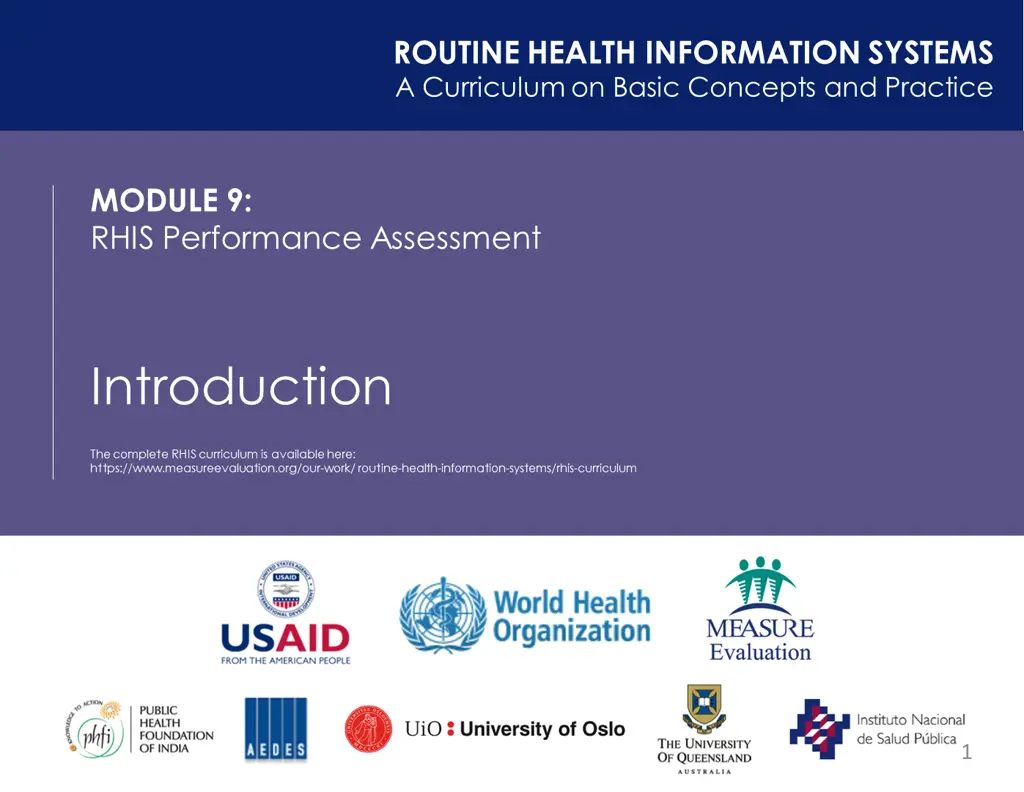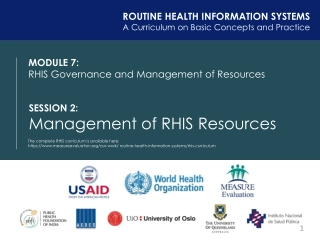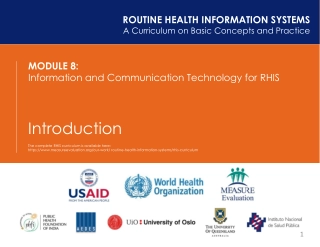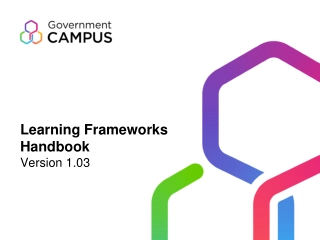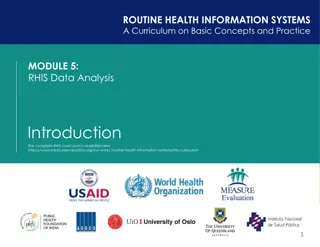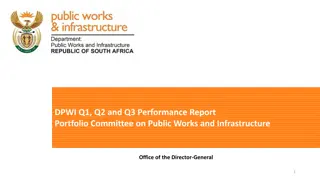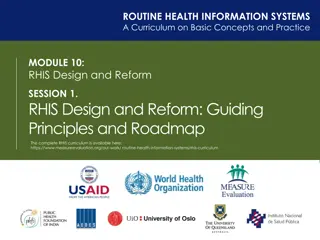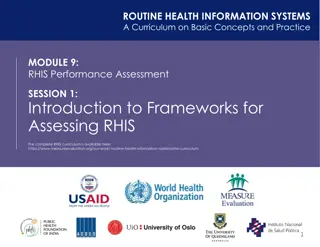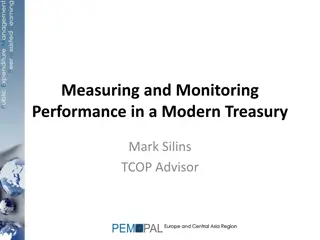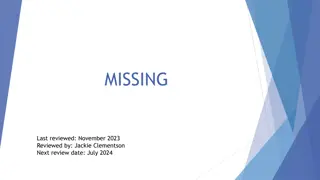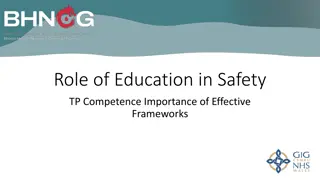RHIS Performance Assessment: Frameworks and Tools
Learn how to assess Routine Health Information System performance through frameworks, standards, and tools. This module covers diagnosing system performance and using assessment tools for effective implementation. Enhance your understanding of RHIS with practical applications.
Download Presentation

Please find below an Image/Link to download the presentation.
The content on the website is provided AS IS for your information and personal use only. It may not be sold, licensed, or shared on other websites without obtaining consent from the author.If you encounter any issues during the download, it is possible that the publisher has removed the file from their server.
You are allowed to download the files provided on this website for personal or commercial use, subject to the condition that they are used lawfully. All files are the property of their respective owners.
The content on the website is provided AS IS for your information and personal use only. It may not be sold, licensed, or shared on other websites without obtaining consent from the author.
E N D
Presentation Transcript
ROUTINE HEALTH INFORMATION SYSTEMS A Curriculum on Basic Concepts and Practice MODULE 9: RHIS Performance Assessment Introduction The complete RHIS curriculum is available here: https://www.measureevaluation.org/our-work/ routine-health-information-systems/rhis-curriculum 1
MODULE 9: Learning Objectives By the end of this module, participants will be able to: Explain frameworks for assessing RHIS Demonstrate understanding of the RHIS standards across the four assessment domains Demonstrate understanding of the three categories of determinants of RHIS performance Diagnose RHIS performance (to measure production, management, and use of high-quality data) Describe the RHIS Rapid Assessment Tool and the purpose of its implementation Apply the PRISM tools to identify and analyze possible constraints on successful implementation of an RHIS 2
MODULE 9: Structure Duration: 6 hours Number of sessions: 3 Session 1: Introduction to Frameworks for Assessing RHIS (1h) Session 2: Overview of RHIS Rapid Assessment Tool (2h) Session 3: Overview of PRISM Assessment Tools (3h) 3
MODULE 9: Suggested References Aqil, A., Lippeveld, T., & Hozumi, D. (2009). PRISM framework: a paradigm shift for designing, strengthening and evaluating routine health information systems. Health Policy and Planning,24(3):217-228. Retrieved from http://www.cpc.unc.edu/measure/publications/ja-09-99 Aqil, A., Lippeveld, T., Moussa, T., & Barry, A. (2012). Performance of Routine Information Systems Management (PRISM) tools user guide. Chapel Hill, NC, USA: MEASURE Evaluation, University of North Carolina. Retrieved from http://www.cpc.unc.edu/measure/publications/ms-12-51 Belay, H. & Lippeveld, T. (2013). Inventory of PRISM framework and tools: application of PRISM tools and interventions for strengthening routine health information system performance. Chapel Hill, NC, USA: MEASURE Evaluation, University of North Carolina. Retrieved fromhttp://www.cpc.unc.edu/measure/publications/wp-13- 138?searchterm=PRISM+invent Heywood, A. & Boone, D. (2015). Guidelines for data management standards in routine health information systems. Chapel Hill, NC: MEASURE Evaluation, University of North Carolina. Retrieved from www.cpc.unc.edu/measure/publications/ms-15-99 4
MODULE 9: Suggested References Hotchkiss, D., Aqil, A., Lippeveld, T., & Mukooyo, E. (2010). Evaluation of the Performance of Routine Information System Management (PRISM) framework: evidence from Uganda. BMC Health Services Research, 10:188. Retrieved from http://www.biomedcentral.com/1472-6963/10/188. International Health Partnership + Related Initiatives (IPH+) and World Health Organization (WHO). (2011). Monitoring, evaluation and review of national health strategies: A country-led platform for information and accountability. Geneva, Switzerland: WHO. Retrieved from http://www.who.int/healthinfo/country_monitoring_evaluation/documenta tion/en/ MEASURE Evaluation. (2016). RHIS Rapid Assessment Tool (RAT). Chapel Hill, NC, USA: MEASURE Evaluation, University of North Carolina. MEASURE Evaluation. PRISM: Performance of Routing Information System Management Framework [Website]. Retrieved from http://www.cpc.unc.edu/measure/resources/tools/monitoring-evaluation- systems/prism. World Health Organization (WHO). (2014). Health facility and community resource kit. Geneva, Switzerland: WHO. Retrieved from http://www.who.int/healthinfo/facility_information_systems/en/ 5
This presentation was produced with the support of the United States Agency for International Development (USAID) under the terms of MEASURE Evaluation cooperative agreement AID-OAA-L-14-00004. MEASURE Evaluation is implemented by the Carolina Population Center, University of North Carolina at Chapel Hill in partnership with ICF International; John Snow, Inc.; Management Sciences for Health; Palladium; and Tulane University. The views expressed in this presentation do not necessarily reflect the views of USAID or the United States government. 6
